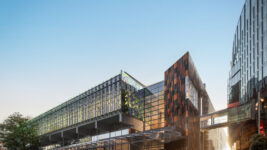VENUE
13 Feb 2024
SUN RAYS TO SOUND WAVES
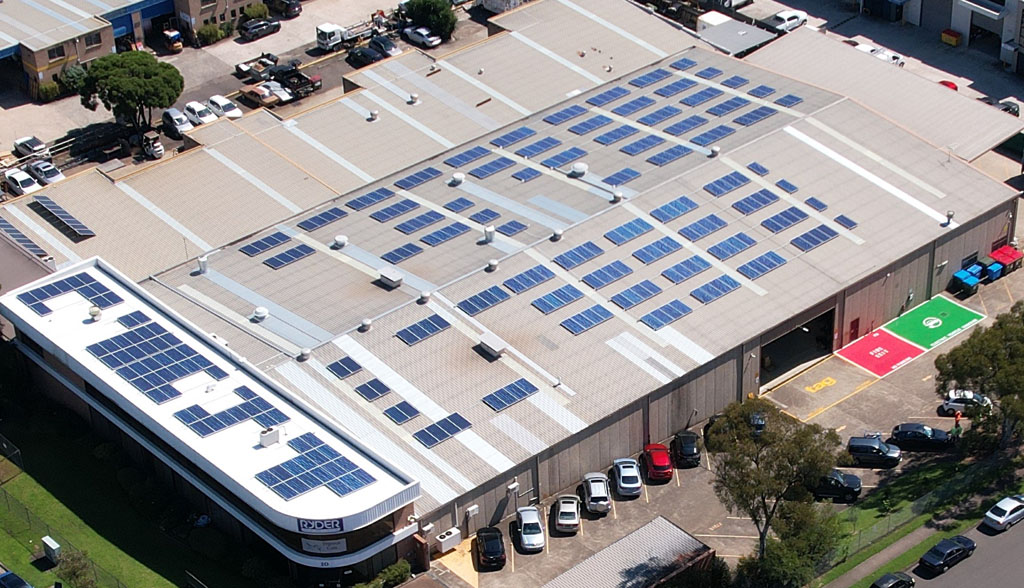
Subscribe to CX E-News
Over the Christmas break, two audio-related businesses down in Bass Coast Shire, in Victoria – The Mill and the Caravan Club – added solar panels and batteries to their power supply systems to capture renewable energy on site, reduce utility bills and minimise their reliance on grid power and coal. Meanwhile, a third business in Sydney, Technical Audio Group, continues to push the boundaries of on-site renewable energy deployment to minimise that company’s environmental impact. Here’s what all three business have installed, and why.
My own recording, mixing and mastering studio down here in Woolamai, The Mill, and Victoria’s Regional Venue of the Year in 2022 & 23, the Caravan Club, now have at least three things in common: they’re both music related businesses, both convert solar power directly into sound waves, and each business now functions as part of a local energy collective, via a not-for-profit organisation called Mycelia.
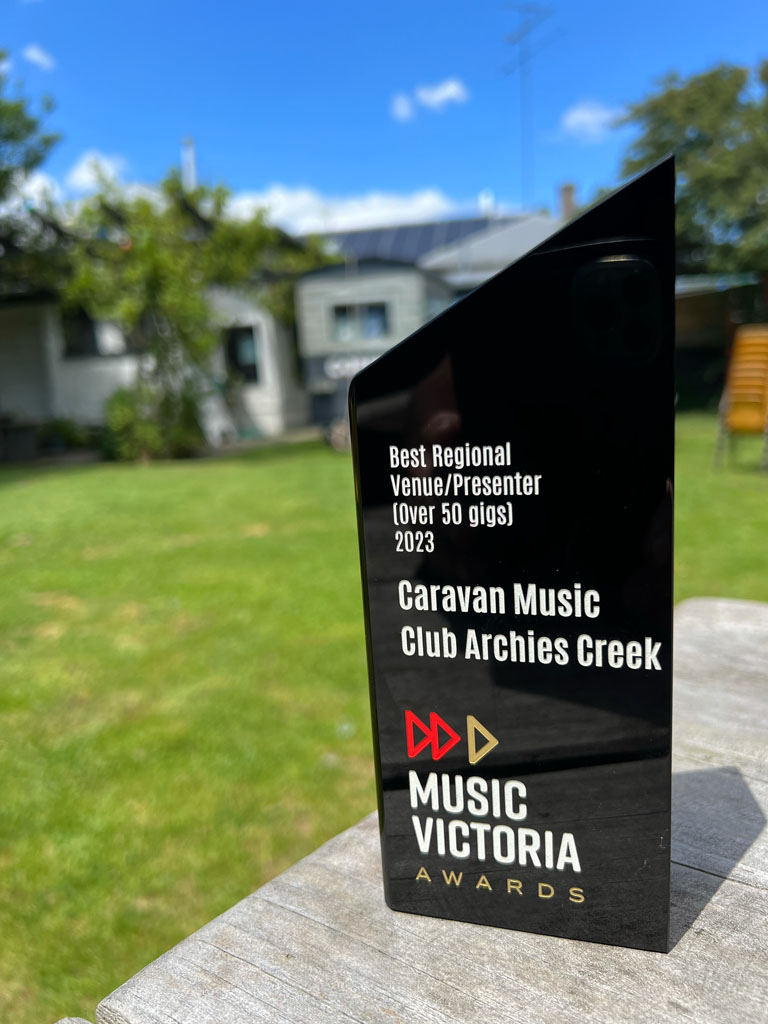

Why? Let’s investigate.
Coal-Powered in 2024… Really?
The Mill uses significant amounts of power for a small business. At its sonic epicentre is a 56-channel SSL 9000K, which alone consumes on average several thousand watts. Around this beast is a significant collection of analogue and digital outboard gear, tape machines and electronic instruments, all of which consume power and require regulated air to function.
And in Victoria, where does a large proportion of this power come from?
Burning coal.
Up until recently, The Mill had a small 4.5kW solar system, which mitigated power bills and its reliance on coal somewhat, but the premises here had no capacity to store energy. Any excess power the photovoltaic system produced during the day was exported to the grid for a pittance and then later, when the sun went down, drawn back in at eight times the price!
Add to this less-than-ideal situation the fact that grid power in Bass Coast Shire is often beset with supply interruptions due to weather events and fires, The Mill is often randomly shut down, along with the house and water supply for the property. This has been a constant bugbear of mine for years that I wasn’t prepared to tolerate in 2024.
Arguably, this vulnerability is even more acutely felt by the Caravan Club down the road in Archies Creek, where, in the case of a blackout mid-performance, hundreds of paying punters would be stuck in a venue without power, and perhaps more crucially, a working PA. Thankfully, blackouts have never directly affected gigs down at the Caravan Club thus far, through sheer blind luck. In the event of a blackout now, however, the venue’s PA will continue to function for the duration of the gig.
Alternative Assets
Installation of solar panels and battery backup systems at both these premises were facilitated over the Christmas break through the Mycelia Energy Collective, a not-for-profit organisation that aims to make renewable energy accessible to everyone through its virtual energy grid. Mycelia employed local solar experts, Sunscape Solar in Grantville, to design and install both systems.
The studio facilities at The Mill are typical of a commercial audio production space in terms of power consumption, with one notable exception: its K-Series SSL. Most new audio production facilities have far less power-hungry audio consoles, if indeed they have one at all. Tape machines are also a rarity these days, unless you include ones being repurposed as pot plant stands, as are large racks of analogue outboard gear that everyone salivated over during the ’80s and ’90s. While many of these toys are still maintained in good working order at The Mill, here they’re turned on and off as required. Long gone are the days when everything was left on all the time.
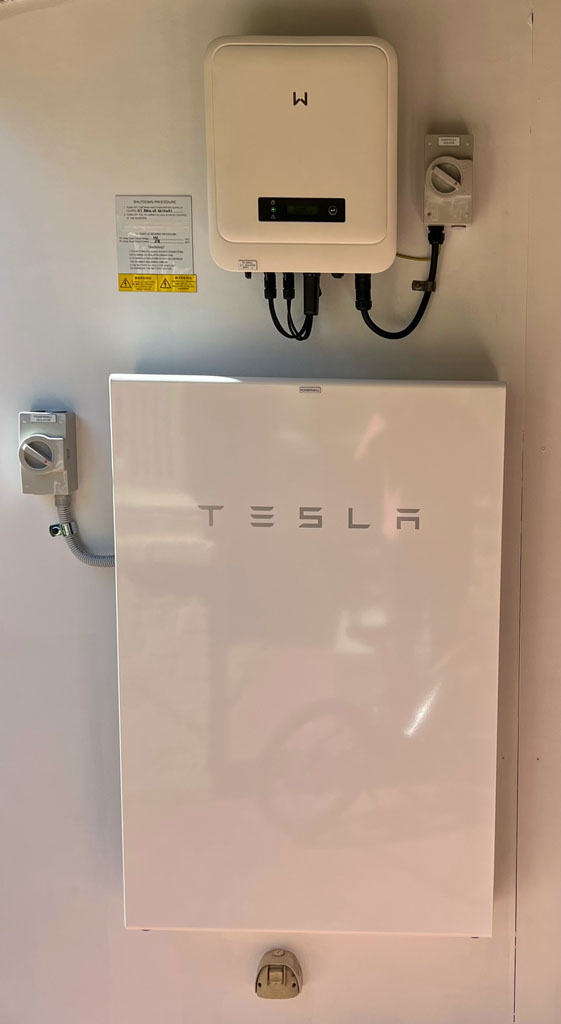
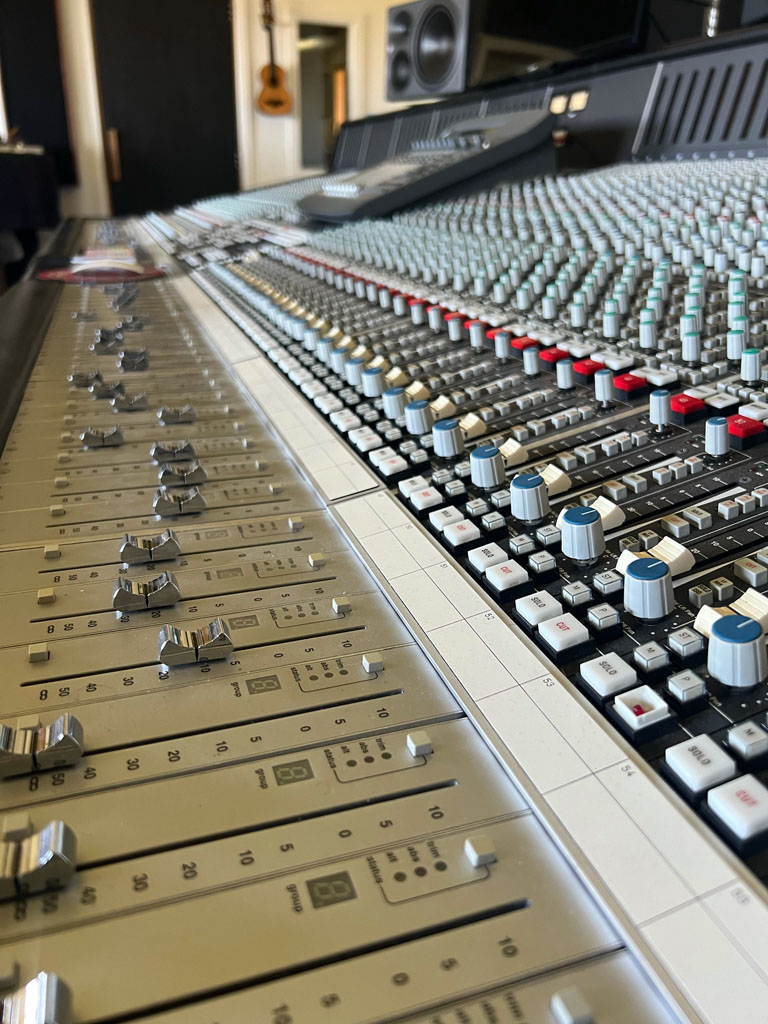
Thanks to Mycelia, The Mill now sports an 11kW solar system comprised of 33 panels spread across two phases, with a 13.5kWh Tesla Powerwall battery backup and Gateway managing the flow between the system’s various components. The setup has worked brilliantly since Day 1, producing as much as 71kWh of power per day, far more than the house and studio require, although these figures will likely plummet during winter, where the consideration of wind power generation is next on the agenda.
The Caravan Club meanwhile sports an even larger system. Sprawled across several sections of the venue’s roof down at Archies Creek are fifty 440W solar panels, and at ground level a 15kW GoodWe three-phase hybrid inverter feeds a 16.6kWh BYD battery backup, and ultimately, the grid. The Caravan Club venue, like so many others around the country, uses significant amounts of power, running everything from fridges, freezers, ovens and cash registers to lighting, PAs, and internet servers. The need for power is an ongoing outlay for this award-winning venue, and its owners, Peter Foley and Mary Howlett, were keen to minimise the venue’s environmental impact and power bill simultaneously.
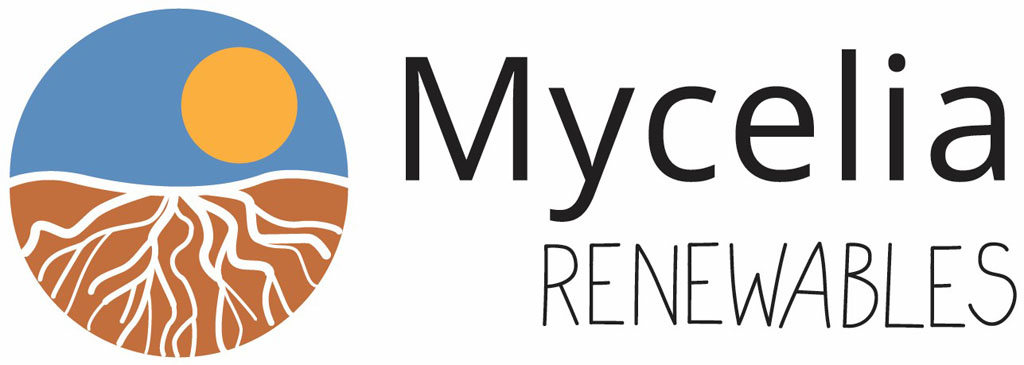
But there’s more to these solar installations than first meets the eye. Woven into the fabric of these two systems is a collaboration with Mycelia and its power retailer, The People’s Grid. These two businesses are striving to provide ‘matched energy’ to the Mycelia Energy Collective, meaning that the amount of power the collective generates is equal to its consumption, as calculated by an algorithm developed by The People’s Grid that analyses collective’s power usage on an almost minute- by-minute basis.

Added to this equation is the broader notion that the collective holds bargaining power and is more than capable of using technological advancement to effectively ‘redesign’ the power grid it inhabits, which in the case of Mycelia, allows for a small percentage of the collective’s outgoings to be ploughed back into a Community Benefit Sharing Fund.
These funds will be used to support other local energy efficiency initiatives, rather than each individual or business simply being at the mercy of a large, extractive corporate entity forever dictating terms of the agreement, and never investing back into local enterprises.
If you want to read more about this, go here: https://mycelia.org.au/mycelia-energy- collective/
TAG Team
Meanwhile in Sydney, well known audio wholesaler Technical Audio Group, which coincidentally supplies audio equipment to both The Mill and the Caravan Club down south, continues to push the boundaries of its use of on-site renewable energy, improved environmentally friendly packaging and recycling methods at both its Stanmore and Kings Park premises.
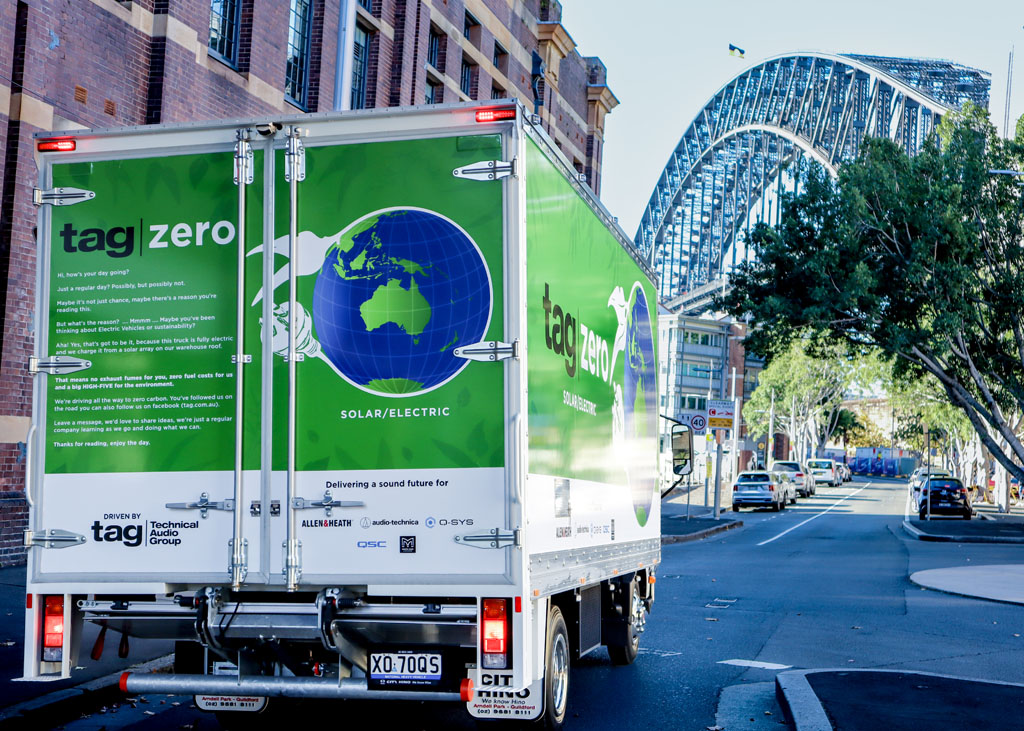
TAG’s solar generated, electrically powered eight tonne pallet truck – an SEA 300 EV that was designed and built here in Australia, based on a Hino cab-chassis – continues to make carbon neutral deliveries all over Sydney. Labelled the ‘TAG Zero’, the truck represents TAG’s substantial commitment to conserving the environment for future generations to enjoy.
And this is no cynical ploy, either. Add to this venture the company’s impressive 108kW solar array on the roof of its Kings Park warehouse, and it’s clear the company takes its commitment to the environment seriously. Moves are also afoot at TAG to add a similar solar array to its Stanmore premises, a task made trickier by the fact of that building being strata titled. But as things stand, it looks to be all systems go in 2024 for the Stanmore premises to provide free power to all its tenants, not just TAG.
The weak link in TAG’s power mitigation system, however, is its current lack of battery storage, something identified by The Mill and the Caravan Club as being a vital component of any renewable energy system that hopes to significantly reduce its reliance on grid power whilst simultaneously building an immunity against short-term blackouts.
But this is not something about which TAG was unaware. On the contrary, the company has looked exhaustively into battery storage, but is yet to take the plunge due to its environmental concerns around Lithium – a lightweight metal commonly used in rechargeable battery chemistries, the mining of which is ironically notorious for having its own environmental impact. It will be interesting to see what batteries TAG ultimately chooses to add to its alternative energy system that will allow it to use its own on-site generated power after the sun goes down.
The Times Are A-Changin’
2024 will be the year where venues and other businesses under the ‘audio industry’ umbrella move to alternative energy sources to save money and the environment, as well as potentially providing power for small collectives of individuals and business operators interested in alternative power sources and superior systems based on collaboration, not competition.
Not everyone has the financial capacity to invest in large alternative energy infrastructure like TAG, nor roofs on which to install it. But those that do may be able to save themselves, and others around them, vast sums of money by harvesting the energy that falls on their premises for free daily. Better still, the audio industry more so than most, has a youthful, creative mindset and technological prowess that could easily be tapped into to potentially redesign how we collectively bargain with power retailers. We all use electricity after all. Without it, hands up whose equipment would continue to work.
For more information around some of the ideas espoused in this article, check these links out:
- Mycelia Energy Collective: www.mycelia.org.au/mycelia-energy-collective/
- The People’s Grid: www.thepeoplesgrid.com
- Sunscape Solar: www.sunscapesolar.com.au
- The Caravan Club: www.caravanmusic.com.au
- The Mill: www.themillstudio.com.au
- TAG: www.tag.com.au/site/pages/tagzero.php
Andy Stewart owns and operates The Mill in Victoria, a world-class production, mixing and mastering facility. He’s now a member of the Mycelia Energy Collective and is happy to respond to any pleas for pro audio help… contact him at: andy@themill.net.au or visit: www.themill.net.au.
Subscribe
Published monthly since 1991, our famous AV industry magazine is free for download or pay for print. Subscribers also receive CX News, our free weekly email with the latest industry news and jobs.

